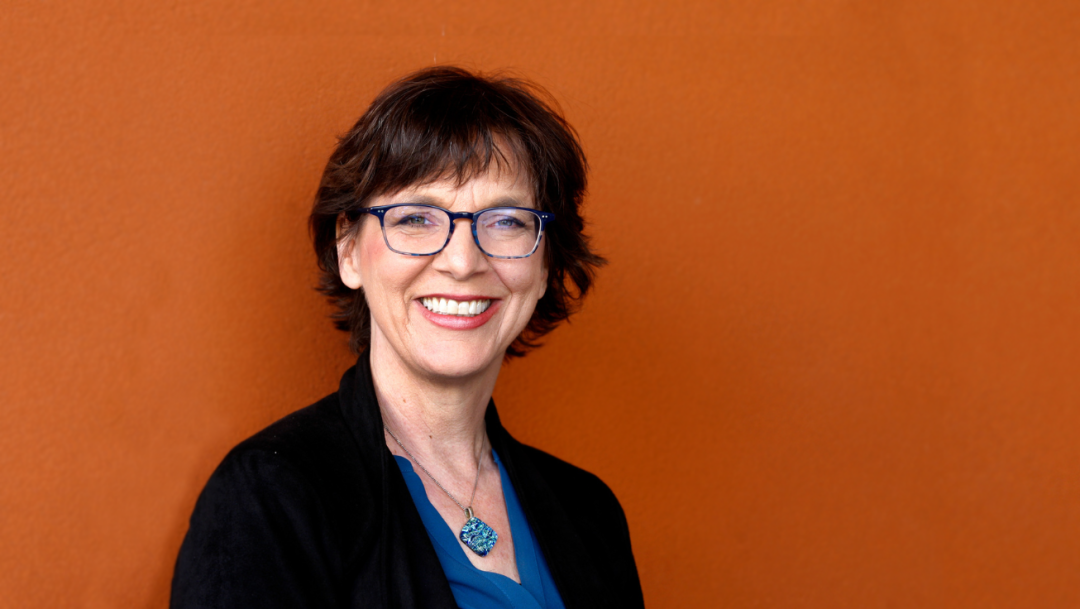
Psychologist leads School of Social Ecology’s academic programs
Susan Charles, professor of psychological science, has been appointed associate dean of the School of Social Ecology’s academic programs.
Charles joined the UCI faculty in 2000 and has served as chair of the Psychological Science Department, associate dean in the Graduate Division, chair of the Graduate Council and the Writing Board. She also served as Social Ecology’s Division Assembly representative, was a member of the Council on Undergraduate Admissions and Relations with the Schools, and has served on many campus ad-hoc committees.
“I can not be more pleased to be working with Susan,” Dean Jon Gould says. “We have a number of challenges to address in the next two years, and she will help lead us through those issues and more.”
Gould, Charles points out, “leads an incredible team of talented faculty, staff, and students. The school has a strong sense of purpose defined by our teaching mission, research mission, and work with the larger community to affect the social ecology of our world. It’s exciting to take a more comprehensive role in this purposeful work.”
One of Charles’ duties will be answering the question, “school of social what?”
Social ecology refers to how people influence, and how they are influenced by, the world around them, she explains.
“We study how people interact with their built and natural (or unbuilt) environment in the Department of Urban Planning and Public Policy; how people shape, and are shaped by, legal policies and practices in the Department of Criminology, Law, and Society; and how these interactions, and how people interact with one another, affect a person's thoughts, behaviors, and well-being in the Department of Psychological Science,” she says.
Charles has a bachelor’s degree in psychology from Stanford, and an M.A. and Ph.D. in clinical psychology from USC. Her honors include being named a Collegium Helveticum Fellow in 2022 in Zurich; an Association for Psychological Science Fellow in 2016, a UCI Chancellor’s Fellow in 2014 and a Gerontological Society of America Fellow in 2012. She also received the Richard Kalish Innovative Publication Award from the Gerontological Society of America in 2011.
She has authored scores of academic journal articles and dozens of chapters in books and other publications. Her research centers on examining how emotional experience and regulation change across the adult lifespan and how such emotional processes are related to mental and physical health. Her work has been continuously funded since 2001 by the National Institutes of Health.
“When I was in college, the prevailing opinion in psychology was that human development stops at the end of adolescence,” Charles says. “Science was just beginning to empirically examine development across the adult life span, and how these changes influence, and are influenced by our physical, cognitive, and emotional well-being. It is fascinating. Given that 30% of U.S. children born today are expected to live to celebrate their 100th birthday, and with a society where more than one in five people are 65 (which will be The U.S. in less than 20 years), this research has never been more important.”
Based on her expertise, the licensed clinical psychologist often is asked for successful aging tips. She offers the following:
- Take care of your heart by elevating your heart rate through exercise: a healthy heart is related to all the “healths” — physical health, functional health, cognitive health, and emotional well-being.
- Take care of your heart by reducing the stress in your life — stress is related to health in almost every way we have measured health.
- Take care of your “heart” by tending to your social life. Having close relationships, and interacting with a variety of people both have been related to how happy people are and how long they live in our research.
- Have variety in your life. Engaging in different types of activities and talking to different types of people is related to your cognitive functioning, your physical health, and (again) even how long you live.
- Get enough sleep — it helps your heart, decision-making, emotion regulation, and your social relationships.
In her free time, Charles loves to travel, listen to music, watch live theater, try different delicious foods. She’s also trying to learn Spanish.
Her favorite books include all 20.5 in the Master and Commander series. “Don’t judge me,” she pleads.
— Mimi Ko Cruz
Related
Parkside Chats: Supporting Seniors
AARP: What Stress Does to the Body After 50
KCBS Radio: New study finds that older people are happier than younger ages
KNX: New research out of UC Irvine shows people are generally at their happiest late in life